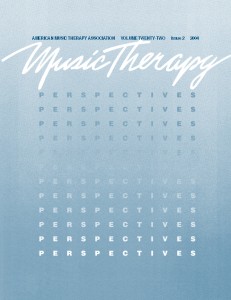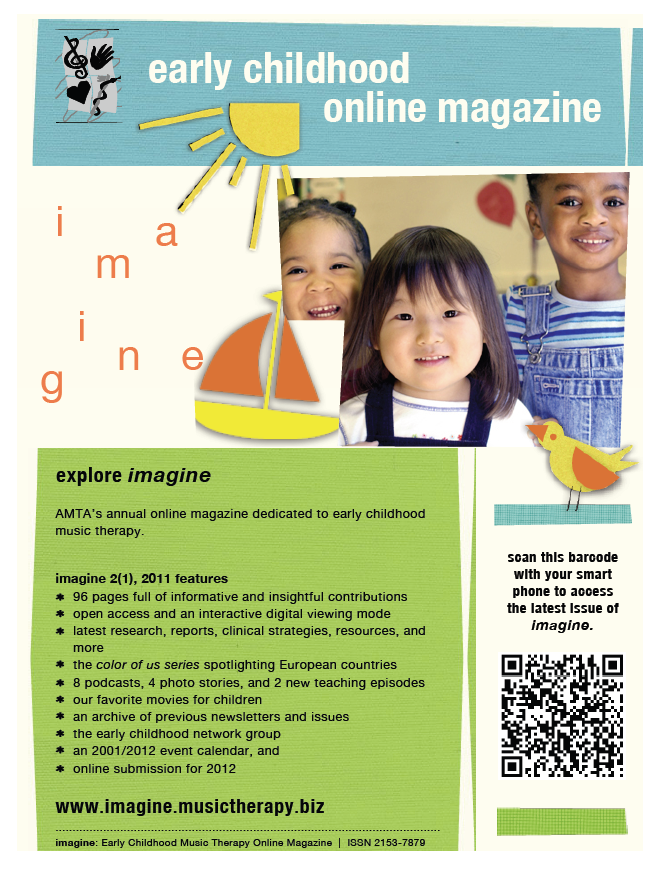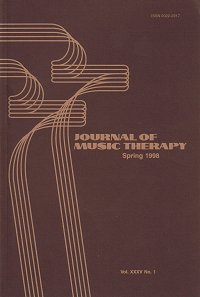Each Monday, I will be writing up a short, non-academic review of an article I’ve found interesting. These articles will be taken from music therapy peer-reviewed journals.
The article I’ll briefly review tonight is, “Use of Music to Improve Speech Production in Children with Autism Spectrum Disorders: Theoretical Orientation,” by Hayoung A. Lim. The article was published in Music Therapy Prespectives, (2009), Vol. 27.
I chose this article because I presented to a group of speech-language pathologists last week, and have since been more and more interested in the role of speech and language in music therapy. I have four clients who are not verbally communicative but are expressive in other ways.
This article is a literature review, and a somewhat lengthy one at that.
I’ll briefly describe three pieces of information regarding speech production I took from the piece:
- The two different kinds of echolalia (defined in this article as “the repetition of utterance with similar intonation of words or phrases that someone else has said” p. 105) are immediate and delayed. Immediate is as it seems, and delayed echolalia can occur as late as weeks following the utterance. Research suggests that echolalia serves as a communicative function, and is also considered a developmental behavior. Echolalia is known as a “speech imitation skill,” and can be targeted in music experiences. Page 105
- Gestalt language forms are defined in this article as “unanalyzed units of speech,” or chunks of speech, routines and patterns within speech, and formulaic utterances that do not complete a cohesive piece of communicative language. With this form of language acquisition that some children with ASD use, these children might be relying in echolalia to interact with others because they are unable at that point in their language development to combine the chunks, if you will. Pages 106 & 107
- Children with ASD typically are preoccupied with routine, and therefore may be more attuned to the predictability of some speech structures and not the context of them. Page 107
Here are three points that implicate the use of music in speech production with children who have ASD:
- “Music perception follows the same principles of general perceptual organization, such as patter recognition and grouping information into categorical units (p. 108).” Music exists in time, and with children who are interested in predicting events to occur, songs with familiar openings and closings can be appealing.
- There has been found significant positive correlation between musical vocal behavior and non-musical speech production behaviors. Page 111
- Music often provides an enjoyable environment and learning situation. Page 112
There are so many more things I could and should say about the relationship between music and speech, but I will leave it for another post.




